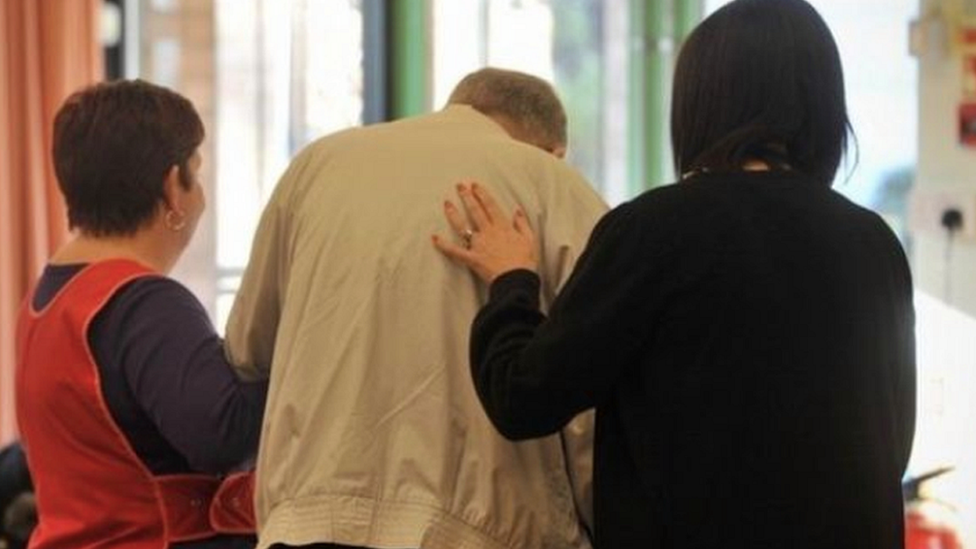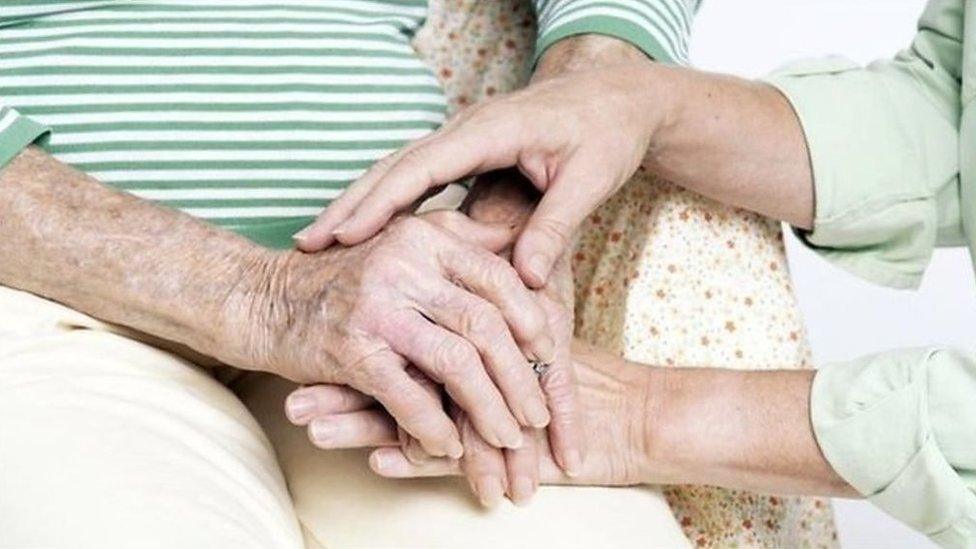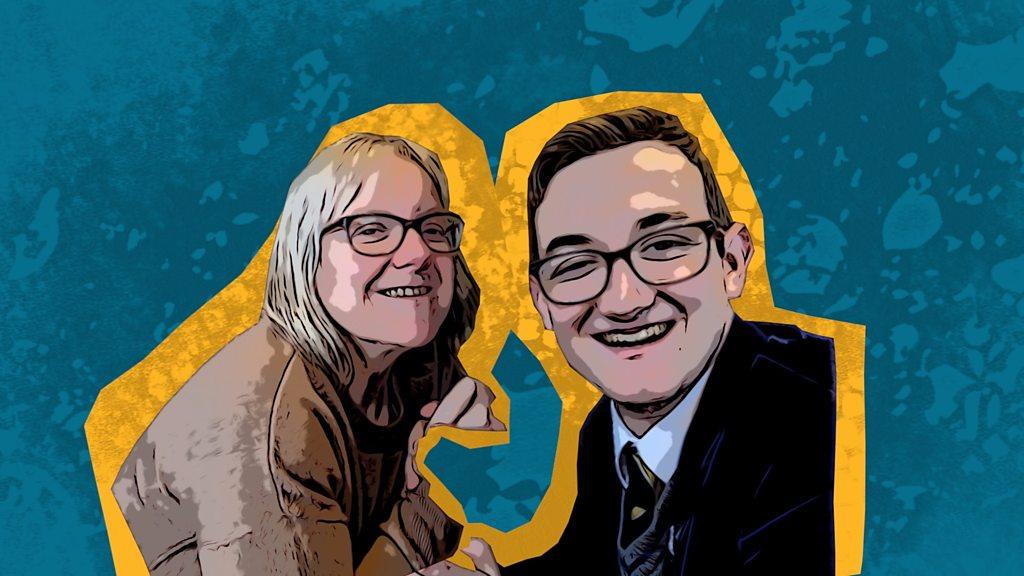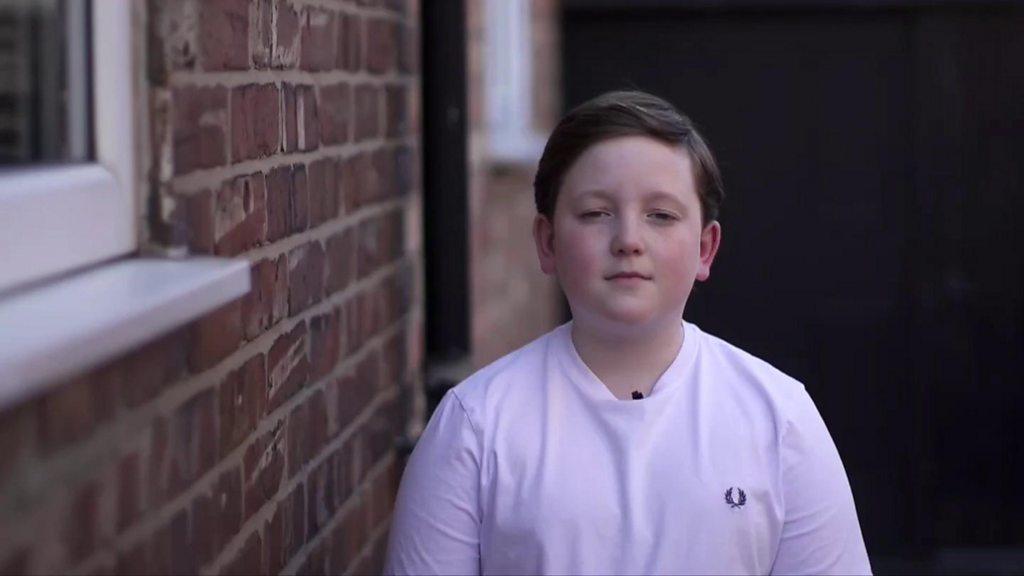Coronavirus: Carers 'left in despair' after services removed
- Published

Carers for children and adults with disabilities have been left in "fear, desperation and despair" over the closure of services due to coronavirus.
That is according to Alliance assembly member (MLA) Kellie Armstrong, speaking during an assembly debate on Tuesday.
An estimated 100,000 extra people have taken on caring responsibilities since lockdown, assembly members heard.
Health Minister Robin Swann said work was under way to enable the resumption of services.
Many special schools and day-care centres closed in mid-March and have not yet reopened.
Assembly members have called on the Department of Health to produce a detailed plan to enable services to open again.
'No warning'
Ms Armstrong said the pandemic had a "significant impact" on children and adults with disabilities and their families.
"One of the key issues with lockdown was the immediate withdrawal of many statutory and non-statutory services," she said.
"In most cases these services were removed without warning or consultation with families."
Ms Armstrong said her father, who was in his mid-70s, had taken on 24-hour caring responsibilities for her brother as his support service had closed.
"It is very difficult to tell a loved one why they are not allowed to go to work or day opportunities or day care," she said.
Ms Armstrong said families needed to know when services would resume.
'Majority are women'
Democratic Unionist Party (DUP) MLA Pam Cameron said parents had been left to make emergency care plans for their disabled children in case they became ill.
"This had a massive impact on mental health," she said.
Ms Cameron called for the executive to commission extensive research on how the closure of services had affected those with disabilities and their families.

Robin Swann said he was very aware of the "challenges and difficulties" lockdown had presented to families and carers of those with disabilities
Sinn Féin MLA Emma Sheerin said the majority of those who had to care for family members with disabilities at home were women.
"The loss of respite services during Covid-19 has been significant," she said.
"Without respite families are providing 24-hour, seven days a week care."
The SDLP's Colin McGrath said essential care had been removed "in the blink of an eye" in March.
"We are now being told that the indications are such that these services will not be restored to meet assessed need for a very long time," he said.
Green Party MLA Rachel Woods said many carers had received no or little support or information during lockdown, while People Before Profit's Gerry Carroll said people with disabilities had been "overlooked" when decisions were being made.
'Struggled to cope'
In response, Mr Swann said he was very aware of the "challenges and difficulties" that lockdown had presented to families and carers of those with disabilities.
"I'm acutely aware that many have faced either long separation from their loved ones being cared for in a setting outside the family home, or the taking on of caring duties on a full-time basis because of the scaling back of services, of the closure of schools," he said.
He said many families had "struggled to cope".
The minister said the closure of day-care centres and special schools had been necessary to minimise the transmission of coronavirus.
But he said work was under way by officials in the departments of health, education and communities to enable the resumption of services.
Guidance for the reopening of special schools after the summer break was published in late June.
However, many pupils may only be able to attend part time initially and the number of therapies available to them could be reduced.
Assembly members unanimously supported the motion recognising the significant impact of Covid-19 on children and adults with a disability, and the exceptional contribution of family carers further to the cessation of many statutory and non-statutory services.
- Published29 April 2020

- Published11 June 2020

- Published8 June 2020
